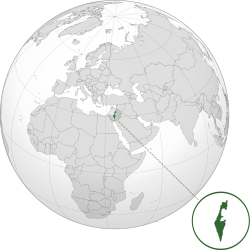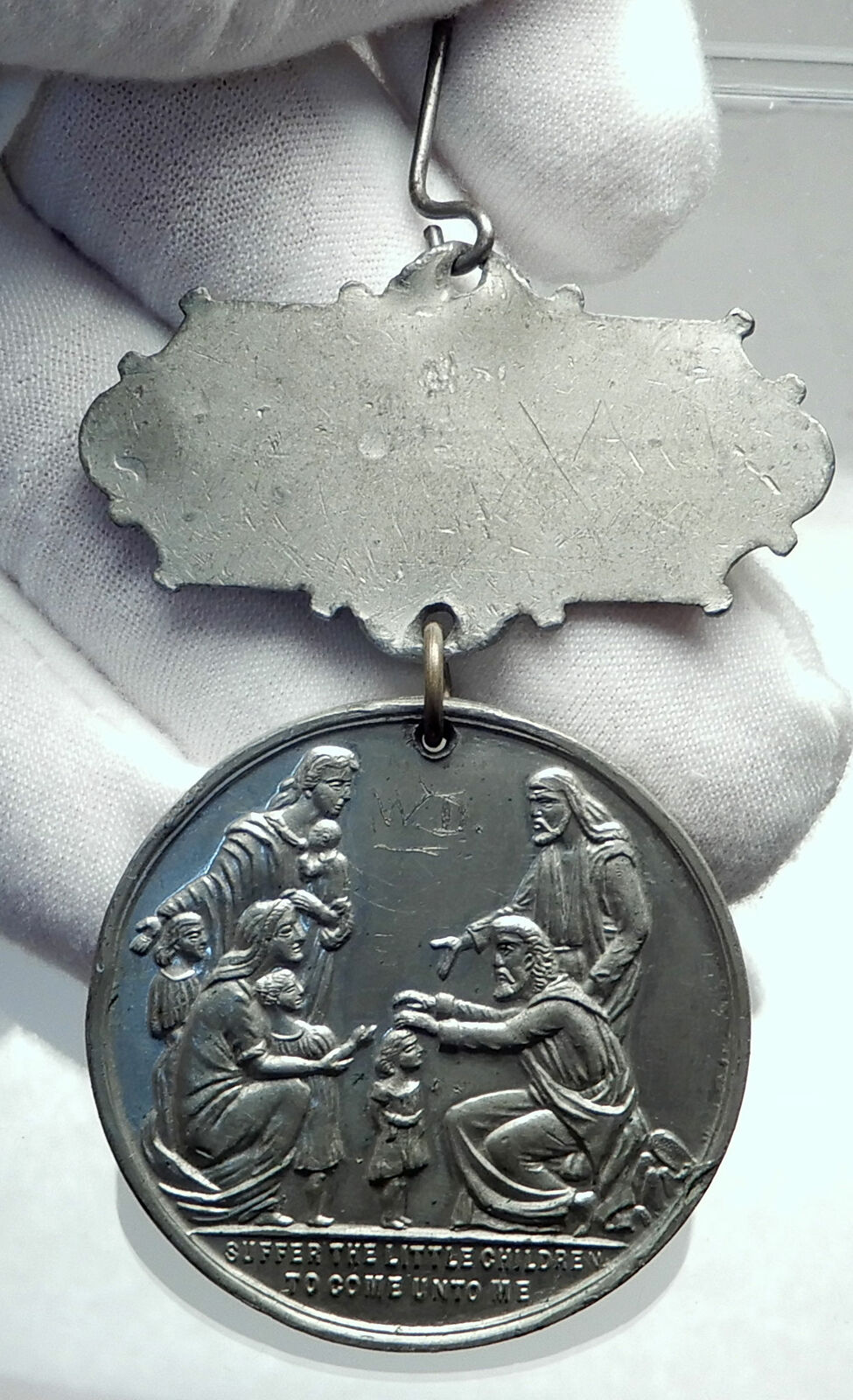|
Israel
Zim Haifa Official Award Medal, 5732-1972
1976 Silver Medal 45mm (40.00 grams) 0.935 Silver (1.383 oz. ASW)
Reference: CM# 52b, ICMC# 26032457
ZIM ISREAL NAVIGATION CO, Two ships right.
ZIM CONTAINER SERVICE ZIM, Zim freighter, seven Stars of David right, sun above.
Edge Lettering:
STATE OF ISRAEL STERLING 935
Coin Notes:
The introduction of container ships into ZIM Maritime Services created a new trend in long distance shipping. This enabled faster turns-around and marked another milestone in the remarkable development of the shipping concern. Designer: Obverse – Nelo Wolfson Reverse – The Shamir Brothers, Engraving: Moshe Nov
You are bidding on the exact item pictured, provided with a Certificate of Authenticity and Lifetime Guarantee of Authenticity.
 Zim Integrated Shipping Services Ltd., commonly known as ZIM (Hebrew: צים, tsim; portmanteau of צי ים, tsi yam, lit. “maritime fleet”), is a publicly held Israeli international cargo shipping company, and one of the top 20 global carriers. The company’s headquarters are in Haifa, Israel; it also has a North American headquarters in Norfolk, Virginia. Originating in 1945, ZIM has traded on the New York Stock Exchange since 2021. From 1948 to 2004, it traded as ZIM Israel Navigation Company. Zim Integrated Shipping Services Ltd., commonly known as ZIM (Hebrew: צים, tsim; portmanteau of צי ים, tsi yam, lit. “maritime fleet”), is a publicly held Israeli international cargo shipping company, and one of the top 20 global carriers. The company’s headquarters are in Haifa, Israel; it also has a North American headquarters in Norfolk, Virginia. Originating in 1945, ZIM has traded on the New York Stock Exchange since 2021. From 1948 to 2004, it traded as ZIM Israel Navigation Company.
ZIM was founded on June 7, 1945, as the ZIM Palestine Navigation Company Ltd, by the Jewish Agency, the Israel Maritime League and the Histadrut (General Federation of Laborers in the Land of Israel). The first ship was purchased in partnership with Harris and Dixon (based in London) in 1947. This vessel was refurbished, renamed SS Kedma, and sailed to the future state of Israel in the summer of 1947. After the State of Israel was established in 1948, the company was renamed ZIM Israel Navigation Company Ltd. During its first years, its main task was transporting hundreds of thousands of immigrants to the emerging state. Some of the other ships that had been used for clandestine immigration before the establishment of Israel as a state were confiscated by the British Mandate authorities and later joined the company’s fleet. The company continued to purchase more ships, among them SS Negba, SS Artza and SS Galila.
During 1947–1949 Palestine war, the company was the sole maritime connection with the State of Israel, supplying food, freight and military equipment.
In 1953, some of the money from the reparations agreement between Israel and West Germany was allocated to the purchase of new ships. The SS Bergensfjord, renamed Jerusalem, sailed the Israel-New York route, Another ship purchased with reparations money was the SS Etzel. The SS Dolphin IV, acquired in 1956, was renamed SS Zion.
In 1950s and 1960s, ZIM concentrated on passenger ships, alongside a constant expansion of the cargo shipping business. Passenger liners were a common means of international transport before the emergence of cheap air transport, and pleasure cruises were also popular. ZIM sailed the Mediterranean Sea, as well as having regular routes to the United States. Some of its ships cruised to the Caribbean during the winter. 1964 saw the completion of the ocean liner SS Shalom, which turned out to be a failure, marking the end of the ZIM passenger shipping era.
ZIM was invited in 1957 by the Government of Ghana to assist the setting up and management of a national shipping line. Black Star Line was formed with a 40% participation by ZIM and principally operated cargo services from West Africa. A similar joint venture – Burma Five Star Line – was made with the Burmese Government in 1959.
During the 1960s, ZIM started to turn its focus to cargo ships, and obtained several special-purpose vessels, including refrigerated ships and oil tankers. ZIM transported crude oil from Iran to Israel and oil byproducts from Israel to Europe.
In the 1970s, ZIM expanded into the container shipping business. ZIM ordered six such ships, and gradually made this its main line of business.
In 1981, one of the company’s ships, Mezada, was lost at sea. Despite a lull in maritime shipping at the beginning of the 1980s, the company built 15 more ships in Germany in the 1990s. At this time, the ownership of ZIM was divided between the Israeli government and Israel Corporation.
In 2008, ZIM planned to launch an initial public offering and selling 25% of its shares on the Hong Kong Stock Exchange, but due to the onset of the global economic crisis it was called off. In 2009, ZIM required a cash injection of $450 million by the Ofer family and debt restructuring following the world’s container shipping downturn.
In 2010, ZIM regained profitability and in early 2011 ZIM renewed its plans for a flotation on the Hong Kong Stock Exchange, but again had to postpone it due to the economic downturn and the drop in container shipping rates.
In 2014, unloading of a ZIM ship at the Port of Oakland was delayed by anti-Israel protesters. Longshoremen declined to load the ship out of safety concerns, taking no position on the underlying dispute, but unloaded the ship after their safety was assured. Other protests in Los Angeles and Tacoma, Washington failed to stop the unloading of cargo from ZIM ships. A second demonstration bypassed Oakland for Los Angeles when longshoremen, not participating in the protest, refused to unload the ship after being physically threatened and their vehicles blocked when they tried to report for work. Protesters’ claim they impacted ZIM’s shipping schedule was denied by the company, and the local Jewish Community Council denounced the “hateful” rhetoric of the demonstrators.
In July 2014, by which time the company was almost wholly owned by Israel Corporation, ZIM was restructured with 68% of the group’s shares owned by its creditors and bondholders, and 32% retained by Israel Corporation, and starting early 2015 by Kenon Holdings, a spin-off company of Israel Corporation.
In mid-to-late 2015, plans to revive an initial public offering were implemented. ZIM debuted on the New York Stock Exchange in January 2021.
In January 2021, ZIM debuted on the New York Stock Exchange, with the backing of Citigroup, Goldman Sachs, and Barclays. ZIM had been considering an initial public offering (IPO) for years, but repeatedly postponed for various reasons.
In March 2021, Zim reported the biggest profit in its 75-year history.
 Israel (/ˈɪzriəl, ˈɪzreɪəl/; Hebrew: יִשְׂרָאֵל; Arabic: إِسْرَائِيل), officially the State of Israel, is a country in the Middle East, on the southeastern shore of the Mediterranean Sea and the northern shore of the Red Sea. It has land borders with Lebanon to the north, Syria to the northeast, Jordan on the east, the Palestinian territories of the West Bank and Gaza Strip to the east and west, respectively, and Egypt to the southwest. The country contains geographically diverse features within its relatively small area. Israel’s economic and technological center is Tel Aviv, while its seat of government and proclaimed capital is Jerusalem, although the state’s sovereignty over Jerusalem has only partial recognition. Israel (/ˈɪzriəl, ˈɪzreɪəl/; Hebrew: יִשְׂרָאֵל; Arabic: إِسْرَائِيل), officially the State of Israel, is a country in the Middle East, on the southeastern shore of the Mediterranean Sea and the northern shore of the Red Sea. It has land borders with Lebanon to the north, Syria to the northeast, Jordan on the east, the Palestinian territories of the West Bank and Gaza Strip to the east and west, respectively, and Egypt to the southwest. The country contains geographically diverse features within its relatively small area. Israel’s economic and technological center is Tel Aviv, while its seat of government and proclaimed capital is Jerusalem, although the state’s sovereignty over Jerusalem has only partial recognition.

Israel has evidence of the earliest migration of hominids out of Africa. Canaanite tribes are archaeologically attested since the Middle Bronze Age, while the Kingdoms of Israel and Judah emerged during the Iron Age. The Neo-Assyrian Empire destroyed Israel around 720 BCE. Judah was later conquered by the Babylonian, Persian and Hellenistic empires and had existed as Jewish autonomous provinces. The successful Maccabean Revolt led to an independent Hasmonean kingdom by 110 BCE, which in 63 BCE however became a client state of the Roman Republic that subsequently installed the Herodian dynasty in 37 BCE, and in 6 CE created the Roman province of Judea. Judea lasted as a Roman province until the failed Jewish revolts resulted in widespread destruction, expulsion of Jewish population and the renaming of the region from Iudaea to Syria Palaestina.[34] Jewish presence in the region has persisted to a certain extent over the centuries. In the 7th century the Levant was taken from the Byzantine Empire by the Arabs and remained in Muslim control until the First Crusade of 1099, followed by the Ayyubid conquest of 1187. The Mamluk Sultanate of Egypt extended its control over the Levant in the 13th century until its defeat by the Ottoman Empire in 1517. During the 19th century, national awakening among Jews led to the establishment of the Zionist movement in the diaspora followed by waves of immigration to Ottoman and later British Palestine.
 In 1947, the United Nations adopted a Partition Plan for Palestine recommending the creation of independent Arab and Jewish states and an internationalized Jerusalem. The plan was accepted by the Jewish Agency, and rejected by Arab leaders. The following year, the Jewish Agency declared the independence of the State of Israel, and the subsequent 1948 Arab-Israeli War saw Israel’s establishment over most of the former Mandate territory, while the West Bank and Gaza were held by neighboring Arab states. Israel has since fought several wars with Arab countries, and it has since 1967 occupied territories including the West Bank, Golan Heights and the Gaza Strip (still considered occupied after 2005 disengagement, although some legal experts dispute this claim).[41][42][43][fn 4] It extended its laws to the Golan Heights and East Jerusalem, but not the West Bank. Israel’s occupation of the Palestinian territories is the world’s longest military occupation in modern times.[fn 4][49] Efforts to resolve the Israeli-Palestinian conflict have not resulted in a final peace agreement. However, peace treaties between Israel and both Egypt and Jordan have been signed. In 1947, the United Nations adopted a Partition Plan for Palestine recommending the creation of independent Arab and Jewish states and an internationalized Jerusalem. The plan was accepted by the Jewish Agency, and rejected by Arab leaders. The following year, the Jewish Agency declared the independence of the State of Israel, and the subsequent 1948 Arab-Israeli War saw Israel’s establishment over most of the former Mandate territory, while the West Bank and Gaza were held by neighboring Arab states. Israel has since fought several wars with Arab countries, and it has since 1967 occupied territories including the West Bank, Golan Heights and the Gaza Strip (still considered occupied after 2005 disengagement, although some legal experts dispute this claim).[41][42][43][fn 4] It extended its laws to the Golan Heights and East Jerusalem, but not the West Bank. Israel’s occupation of the Palestinian territories is the world’s longest military occupation in modern times.[fn 4][49] Efforts to resolve the Israeli-Palestinian conflict have not resulted in a final peace agreement. However, peace treaties between Israel and both Egypt and Jordan have been signed.
In its Basic Laws, Israel defines itself as a Jewish and democratic state. Israel is a representative democracy[neutrality is disputed] with a parliamentary system, proportional representation and universal suffrage. The prime minister is head of government and the Knesset is the legislature. Israel is a developed country and an OECD member, with the 32nd-largest economy in the world by nominal gross domestic product as of 2017. The country benefits from a highly skilled workforce and is among the most educated countries in the world with one of the highest percentages of its citizens holding a tertiary education degree. Israel has the highest standard of living in the Middle East, and has one of the highest life expectancies in the world.
|





 Zim Integrated Shipping Services Ltd., commonly known as ZIM (Hebrew: צים, tsim; portmanteau of צי ים, tsi yam, lit. “maritime fleet”), is a publicly held Israeli international cargo shipping company, and one of the top 20 global carriers. The company’s headquarters are in Haifa, Israel; it also has a North American headquarters in Norfolk, Virginia. Originating in 1945, ZIM has traded on the New York Stock Exchange since 2021. From 1948 to 2004, it traded as ZIM Israel Navigation Company.
Zim Integrated Shipping Services Ltd., commonly known as ZIM (Hebrew: צים, tsim; portmanteau of צי ים, tsi yam, lit. “maritime fleet”), is a publicly held Israeli international cargo shipping company, and one of the top 20 global carriers. The company’s headquarters are in Haifa, Israel; it also has a North American headquarters in Norfolk, Virginia. Originating in 1945, ZIM has traded on the New York Stock Exchange since 2021. From 1948 to 2004, it traded as ZIM Israel Navigation Company. Israel (/ˈɪzriəl, ˈɪzreɪəl/; Hebrew: יִשְׂרָאֵל; Arabic: إِسْرَائِيل), officially the State of Israel, is a country in the Middle East, on the southeastern shore of the Mediterranean Sea and the northern shore of the Red Sea. It has land borders with Lebanon to the north, Syria to the northeast, Jordan on the east, the Palestinian territories of the West Bank and Gaza Strip to the east and west, respectively, and Egypt to the southwest. The country contains geographically diverse features within its relatively small area. Israel’s economic and technological center is Tel Aviv, while its seat of government and proclaimed capital is Jerusalem, although the state’s sovereignty over Jerusalem has only partial recognition.
Israel (/ˈɪzriəl, ˈɪzreɪəl/; Hebrew: יִשְׂרָאֵל; Arabic: إِسْرَائِيل), officially the State of Israel, is a country in the Middle East, on the southeastern shore of the Mediterranean Sea and the northern shore of the Red Sea. It has land borders with Lebanon to the north, Syria to the northeast, Jordan on the east, the Palestinian territories of the West Bank and Gaza Strip to the east and west, respectively, and Egypt to the southwest. The country contains geographically diverse features within its relatively small area. Israel’s economic and technological center is Tel Aviv, while its seat of government and proclaimed capital is Jerusalem, although the state’s sovereignty over Jerusalem has only partial recognition.
 In 1947, the United Nations adopted a Partition Plan for Palestine recommending the creation of independent Arab and Jewish states and an internationalized Jerusalem. The plan was accepted by the Jewish Agency, and rejected by Arab leaders. The following year, the Jewish Agency declared the independence of the State of Israel, and the subsequent 1948 Arab-Israeli War saw Israel’s establishment over most of the former Mandate territory, while the West Bank and Gaza were held by neighboring Arab states. Israel has since fought several wars with Arab countries, and it has since 1967 occupied territories including the West Bank, Golan Heights and the Gaza Strip (still considered occupied after 2005 disengagement, although some legal experts dispute this claim).[41][42][43][fn 4] It extended its laws to the Golan Heights and East Jerusalem, but not the West Bank. Israel’s occupation of the Palestinian territories is the world’s longest military occupation in modern times.[fn 4][49] Efforts to resolve the Israeli-Palestinian conflict have not resulted in a final peace agreement. However, peace treaties between Israel and both Egypt and Jordan have been signed.
In 1947, the United Nations adopted a Partition Plan for Palestine recommending the creation of independent Arab and Jewish states and an internationalized Jerusalem. The plan was accepted by the Jewish Agency, and rejected by Arab leaders. The following year, the Jewish Agency declared the independence of the State of Israel, and the subsequent 1948 Arab-Israeli War saw Israel’s establishment over most of the former Mandate territory, while the West Bank and Gaza were held by neighboring Arab states. Israel has since fought several wars with Arab countries, and it has since 1967 occupied territories including the West Bank, Golan Heights and the Gaza Strip (still considered occupied after 2005 disengagement, although some legal experts dispute this claim).[41][42][43][fn 4] It extended its laws to the Golan Heights and East Jerusalem, but not the West Bank. Israel’s occupation of the Palestinian territories is the world’s longest military occupation in modern times.[fn 4][49] Efforts to resolve the Israeli-Palestinian conflict have not resulted in a final peace agreement. However, peace treaties between Israel and both Egypt and Jordan have been signed. 




